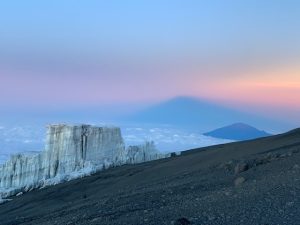Training for Climbing Kilimanjaro: Essential or Optional?
When embarking on the journey to climb Mount Kilimanjaro, the highest peak in Africa, physical preparation is a crucial aspect that should not be overlooked. While some may argue that training for the climb is optional, the importance of physical preparation cannot be understated. In this article, we will explore the significance of training for climbing Kilimanjaro and the benefits it provides to climbers.
Importance of Physical Preparation
Mount Kilimanjaro stands at an impressive 19,341 feet above sea level, making it a challenging endeavor for even the most experienced hikers. The altitude, rugged terrain, and unpredictable weather conditions all contribute to the difficulty of the climb. Without proper physical preparation, climbers may face a higher risk of altitude sickness, exhaustion, and injury.
Training for climbing Kilimanjaro involves a combination of cardiovascular exercises, strength training, and endurance building. Cardiovascular activities such as running, cycling, or hiking help improve lung capacity and oxygen uptake, crucial for high-altitude climbs. Strength training, particularly focusing on the legs and core muscles, helps build the necessary strength and stability for navigating steep and rocky terrain. Endurance building through long hikes or runs prepares climbers for the grueling hours of trekking each day.
Benefits of Training for Kilimanjaro
-
Improved Physical Fitness: Training for Kilimanjaro not only prepares climbers for the physical demands of the climb but also improves overall fitness levels. The cardiovascular, strength, and endurance training involved in preparation can help individuals lead a healthier lifestyle beyond the climb.
-
Reduced Risk of Altitude Sickness: Proper physical preparation can help acclimatize the body to the reduced oxygen levels at high altitudes, reducing the risk of altitude sickness. Climbers who are physically fit are better equipped to handle the challenges of altitude and are less likely to experience altitude-related illnesses.
-
Enhanced Mental Resilience: Climbing Kilimanjaro is as much a mental challenge as it is a physical one. Training builds mental resilience, determination, and confidence, essential for overcoming the mental hurdles encountered during the climb.
-
Increased Enjoyment of the Climb: Climbers who have trained adequately for Kilimanjaro are more likely to enjoy the experience and appreciate the beauty of the mountain. Physical fitness allows climbers to focus on the journey and take in the breathtaking views, rather than struggling with exhaustion or discomfort.
In conclusion, while training for climbing Kilimanjaro may be viewed as optional by some, the importance of physical preparation cannot be overstated. Proper training not only enhances the climbing experience but also reduces the risk of altitude sickness and injury. For those considering embarking on this challenging adventure, investing time and effort in physical preparation is essential for a safe and enjoyable climb.
For booking requests for a Kilimanjaro climb organized by Sunset Africa Safari, please contact info@sunsetafricasafari.com.



